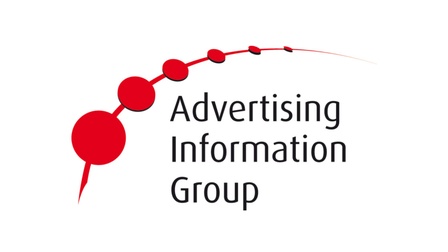
AIG Newsletter 26 February 2024
Advertising Information Group-Newsletter
Lesedauer: 4 Minuten
CONTENT:
In our European update, the European Commission hosted the inaugural meeting of the European Board of Digital Services. Formal proceedings were initiated against TikTok under the Digital Services Act, focusing on areas of potential non-compliances. EP LIBE and IMCO confirmed a provisional agreement on the AI Act and the Commission announces the creation of the European AI Office announced to strengthen AI governance. A sweep of online influencers revealed commercial disclosure issues; investigations and potential enforcement actions are underway for influencers violating regulations.
NEWS
EC HOSTS FIRST MEETING OF THE EUROPEAN BOARD OF DIGITAL SERVICES
On 19 February, the EC hosted the first meeting of the European Board of Digital Services together with the Digital Services Coordinators (DSC). Commissioner Breton participated in the meeting and several topics were discussed such as the draft rules of procedure, the draft DSA guidelines for elections, and enforcement strategies. The DSA entered into force on 17 February and now applies to all online intermediaries in the EU. Member States must appoint Digital Services Coordinators to ensure compliance. An advisory group under the European Board of Digital Services will be created ensure consistent application of the DSA across the EU.
EC OPENS FORMAL PROCEEDINGS AGAINST TIKTOK UNDER DSA
On 19 February, the EC opened formal proceedings to verify whether TikTok violated DSA rules. The proceedings against TikTok focus on several areas related to DSA compliance. These include assessing and mitigating systemic risks related to algorithmic systems, ensuring privacy and security measures for minors, maintaining a reliable archive for advertisements, and increasing the transparency of the platform. The EC is authorised to collect evidence, apply interim measures, and accept remedies from TikTok.
There is no fixed deadline for the conclusion of the investigation, which may depend on various factors such as the complexity of the case and cooperation. These proceedings do not affect other potential violations of the DSA or enforcement actions by other authorities. In addition, the initiation of formal proceedings relieves Digital Services coordinators of their supervisory powers over alleged violations.
EP LIBE AND IMCO CONFIRM PROVISIONAL AGREEMENT ON THE AI ACT
On 13 February, the LIBE and IMCO Committees confirmed the provisional agreement on the AI Act with 71 votes in favour, 8 against and 7 abstentions. The EP Plenary will vote on the text in April. COREPER already confirmed the agreement on 2 February. The co-rapporteurs underlined that this is the first regulation on AI.
On the same day, EP JURI’s rapporteur Axel Voss (EPP, DE) briefed the Committee on the outcome of the trilogues. He explained that the negotiations had been complicated and they had to find a compromise with the Council. He underlined the overlaps with other areas, such as medical devices rules. Voss said that legal uncertainty will be problematic for businesses in Europe and they will have to find ways to minimise it.
EC ANNOUNCES CREATION OF AI OFFICE
On 21 February, the EC announced the creation of the European AI Office in accordance with the AI Act. The European AI Office will support the development and use of trustworthy AI, while protecting against AI risks. The AI Office was established within the European Commission as the centre of AI expertise and forms the foundation for a single European AI governance system. It will ensure a strategic, coherent and effective European approach on AI at the international level, becoming a global reference point.
EC CONDUCTS SWEEP OF ONLINE INFLUENCERS
On 14 February, the EC, together with the national consumer protection authorities from 22 Member States, Norway and Iceland published the results of a screening of influencers' social media posts to assess compliance with EU consumer law. They discovered that 97% of influencers posted commercial content, but only 20% consistently declared that the posts included advertisement. In addition, many influencers did not provide the required company data, did not use platform labels for commercial content, and did not state advertising in all their communications.
As a result, 358 influencers are being further investigated and enforcement actions may follow. This investigation underlines the importance of having updated legislation ensuring digital fairness for consumers. Starting from 17 February, the DSA will impose obligations on influencers to declare commercial content and ensure traceability. Under the AVMSD, influencers must comply with the rules on AV commercial communications, incitement to violence and harmful content for minors.
DATES FOR YOUR DIARY
28 February: ETUI-ETUCE expert conference on AI at work: the impact of AI on the higher education and research sector. (European Trade Union Institute)
5 & 6 March: Privacy Sandbox Webinars(Google)
6 March: Protecting the 2024 Elections: From Alarm to Action. (Greens/EFA)
14 March: 2nd ENISA Cybersecurity Policy Conference. (ENISA)
14 March: AI and machine translation for secondary education. (European Commission)
14 March: European Innovation Council Summit 2024. (European Innovation Council)
20 March: The European Connectivity Landscape - What Reforms Are Needed for a New Era?(EURACTIV)
Stand: 27.02.2024